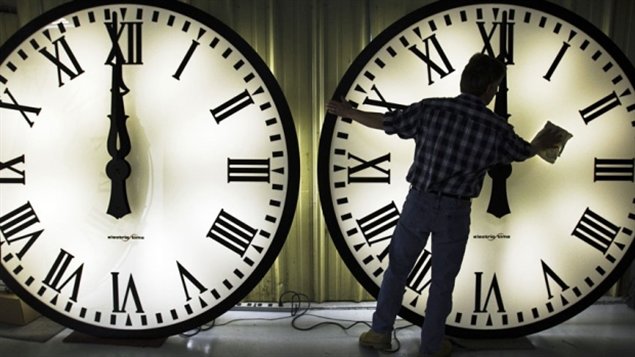In most of Canada people will be adjusting their clocks Saturday night, or Sunday morning to stay in sync with most of North America.
“Springing forward” an hour to make the most of the early morning light has its supporters and detractors. Many people cite the small spike in heart attacks after the spring change, and an increase in car accidents with pedestrians in the autumn when the clocks “fall back” to local time, as reasons not to make the change. But others claim the original intent of saving energy in the morning and the longer sunny evenings, make the annual adjustments worthwhile.
Originally proposed by Bejnamin Franklin in the 1770’s it was not until the 20th century that DST became routine. Daylight Saving Time was first adopted in Germany In 1915. During the First World War, the move was decreed, as it is today, in an effort to make the most of the early morning daylight and save energy. Britain adopted the change the following year calling it British Summer Time.
Not Saskatchewan
Time changes are under provincial jurisdiction in Canada. The prairie province of Saskatchewan is the only province that has not adopted it. Premier Brad Wall promised a referendum on the matter during his election campaign in 2007, but a poll in 2011 revealing 66 per cent of the population was opposed led the premier to declare Saskatchewan would remain on Standard Time. There are areas in British Columbia and Quebec that do not adjust the clocks.
In 2007 the United States moved the start of daylight time three weeks earlier in the spring and the return to standard time a week later in the fall. The change was aimed at trying to help save energy, since people aren’t expected to need their lights on as early in the evening. But there is still some debate about whether the change reduces energy consumption.
Canada made the same adjustments in 2007 to remain synchronized with the United States facilitating trade and commerce between the two countries, and because more energy would be saved.
While most North American and European countries adjust to daylight saving, most African and Asian countries do not.







For reasons beyond our control, and for an undetermined period of time, our comment section is now closed. However, our social networks remain open to your contributions.